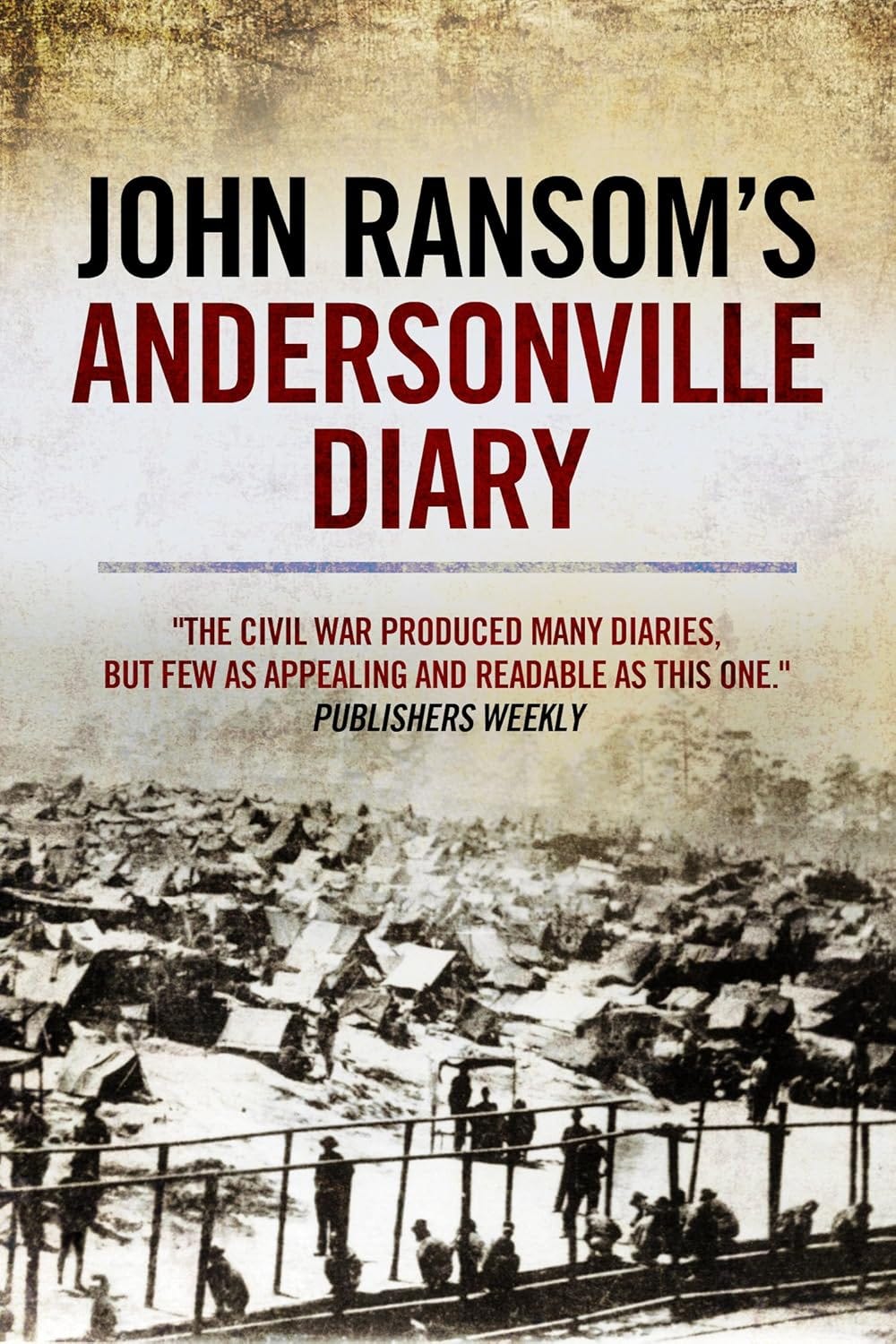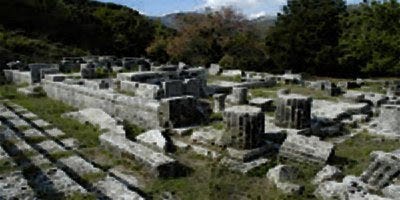One of the most profound and troubling books I’ve ever read is "Andersonville Diary".
Written during the Civil War, the diary is John Ransom's harrowing firsthand account of his 14 months as a Union prisoner of war at the infamous Andersonville prison in Georgia from 1864 to 1865. The book, based on his actual diary entries written while imprisoned, provides one of the most emotional and disturbing testimonies of Civil War prison camp conditions.
Capture and Journey to Hell
Ransom, a young Union soldier from Michigan, was captured in November 1863 and eventually transferred to Andersonville in March 1864. He describes the horrific journey south in overcrowded cattle cars, where men died standing up from lack of space and sanitation.
Life in Andersonville
The prison was designed for 10,000 men but held over 32,000 at its peak. Ransom's diary chronicles the daily nightmare: men receiving a cup of cornmeal mush and a piece of rancid bacon as their only food, leading to mass starvation. He writes about prisoners becoming walking skeletons, their bodies covered in lice and sores, many going insane from hunger and despair.
The Deadline and Violence
Ransom describes the "deadline" - a fence 19 feet inside the prison walls where guards would shoot anyone who crossed it. He witnessed men deliberately crossing it to end their suffering. The diary also details the reign of terror by the "Raiders," gangs of prisoners who robbed and murdered their fellow inmates for food and valuables, until other prisoners organized the "Regulators" to restore order through brutal vigilante justice.
Disease and Death
The diary captures the horror of rampant disease - dysentery, scurvy, gangrene, and typhoid fever. Ransom describes men whose legs rotted off from gangrene, others who became living corpses from dysentery, and the daily ritual of carrying out dozens of bodies. At one point, 100 men were dying daily.
Survival and Humanity
Despite the horrors, Ransom also documents acts of extraordinary kindness and friendship among prisoners. He formed close bonds with fellow inmates who shared their meager rations and cared for each other. His own survival was partly due to his ability to trade and his friendship with a fellow prisoner who helped him.
Liberation and Legacy
Ransom was eventually transferred to other prisons and liberated in March 1865. His diary ends with his return home, weighing only 85 pounds. The book serves as both a testament to human endurance and a damning indictment of the Confederate prison system. Of the 45,000 Union soldiers imprisoned at Andersonville, nearly 13,000 died - a mortality rate of almost 30%.
The diary remains one of the most powerful and disturbing accounts of the Civil War's prison experience, offering an unflinching look at humanity's capacity for both cruelty and compassion under the most extreme circumstances.
Read "Andersonville Diary".
Fork In The Road
“Greece would not have fallen had it obeyed Polybius in everything, and when Greece did meet disaster, its only help came from him”










Its interesting to note that the prison camps of the civil war were a horror on both sides, the northern being the worst. But the real horror, was that Lincoln knowing the suffering, ended prison exchanges of the youngest, the maimed, and the injured. He was a monster. There was no justification for this.
Its interesting to note that the prison camps of the civil war were a horror on both sides, the northern being the worst. But the real horror, was that Lincoln knowing the suffering, ended prison exchanges of the youngest, the maimed, and the injured. He was a monster. There was no justification for this.